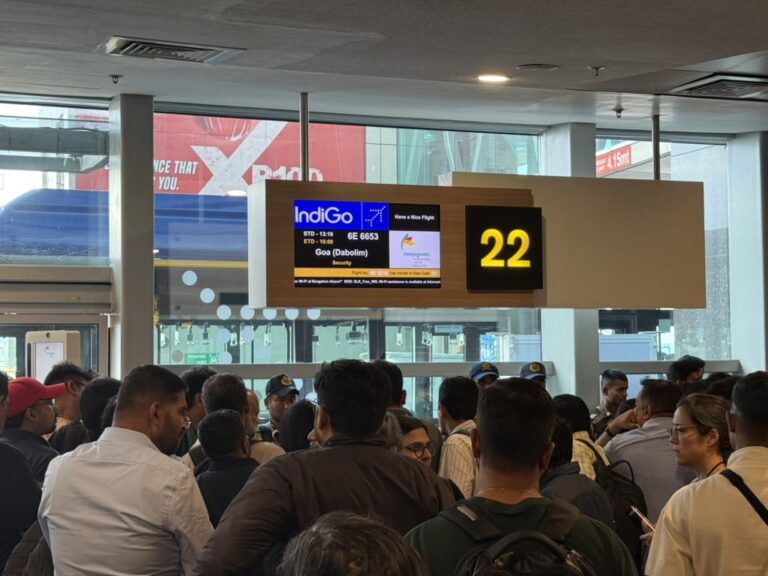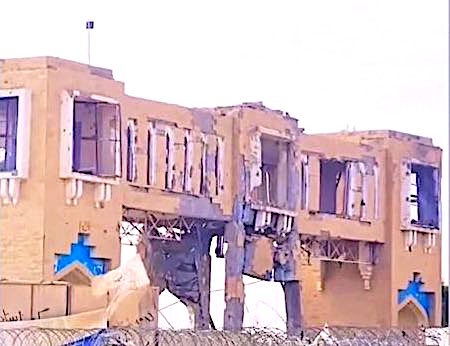
Geneva: The world loses more than $2 trillion annually due to illicit trade, which drains countries of valuable resources and impedes sustainable development.
In recent years, such trade has moved significantly towards the digital economy, with an increased presence on social media and online marketplaces. The COVID-19 pandemic has greatly expedited this trend.
Besides, containerized maritime transport is the backbone of globalization and accounts for the highest volume and value of illicit goods traded.
Moreover, substandard and falsified medical products are a serious and growing threat to global health. The average value of customs seizures of counterfeit and stolen medicines grew by 5% in 2020. A pan-African police operation resulted in seizures of more than 12 million illegal health products in 2021. Estimates show that up to 169,000 children may die from pneumonia every year after receiving counterfeit drugs, and that fake anti-malarial medication might be responsible for an additional 116,000 deaths in sub-Saharan Africa alone.
The United Nations Conference on Trade and Development (UNCTAD) defines illicit trade as the transaction of any goods that fail to comply with legislative and regulatory frameworks, including in the ways in which they are produced, transported, certified or sold.
Examples include trade in endangered species and falsified medicines and illegitimate financial flows related to drug trafficking, terrorist financing, trade misinvoicing and aggressive tax avoidance.
“When trade is fair, rules-based, and strategic – trade is a source of good, a source of development that can help us achieve our Sustainable Development Goals. Illicit trade is the opposite of this. Illicit trade is neither fair, nor legal, nor purposeful,” UNCTAD Secretary-General Rebeca Grynspan said.
She said illicit trade significantly endangers all aspects of sustainable development and especially represents a triple threat to its financing. Developing economies are particularly vulnerable to this threat.
“Illicit trade crowds out legitimate economic activity deprives governments of much-needed fiscal revenues and increases the costs of achieving our SDGs,” she added.
UNCTAD stated it is well-positioned to help developing countries confront the challenge of illicit trade through enhancing international collaboration across the trade and development network, as mandated by its 15th quadrennial ministerial conference last year. It announced that it will host its second Illicit Trade Forum on September 6 and 7, 2021, providing a platform for countries to collaborate on tackling this menace to development.
The event to be held in Geneva and online is organized in collaboration with the Transnational Alliance to Combat Illicit Trade (TRACIT). It will bring together a wide range of stakeholders, including member states and representatives from intergovernmental organizations, NGOs, academia and the private sector. The forum is open to the public for either virtual or in-person participation but registration is required.
The forum will examine how to curb illicit trade during crises such as pandemics, wars, financial crashes and natural disasters, which are ripe opportunities for illicit profit-making and exploitation.
One of its sessions will raise awareness about illicit trade’s growing threat during economic, health, environmental and conflict crises, and draw attention to new strategies to fight this phenomenon. Participants will also discuss how to close governance gaps that spur illicit trade in maritime transport. Abuse of containerized maritime transport in illicit trade is not a stand-alone problem, and a coordinated approach to address it is required.
Participants will also discuss how to tackle illicit financial flows. This cover flows related to drug markets, terrorist financing, trade misinvoicing and aggressive tax avoidance, among others.
Illicit financial flows result in the loss of desperately needed resources to fund public initiatives or critical investments. Collectively, for developing countries, this often represents hundreds of millions of dollars in lost revenues.
– global bihari bureau





